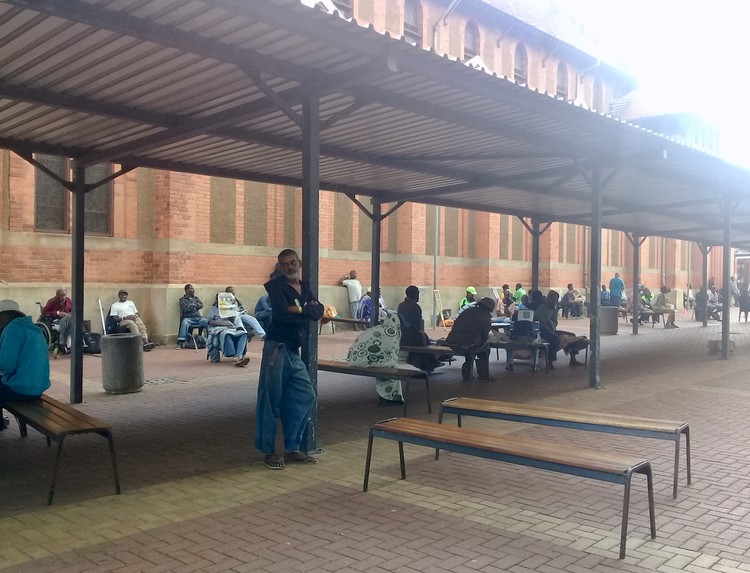
Covid-19: I Wouldn’t go Back to the Streets says Homeless Man
Lwazi Sithole has lived on the streets of Durban for over eight years, but since the national lockdown to disrupt the spread of Covid-19, the 28-year-old has moved to the Denis Hurley Centre, and has started to rethink his life… writes Nokulunga Majola. “I had forgotten what life is like off the streets. Here at the […]

Lwazi Sithole has lived on the streets of Durban for over eight years, but since the national lockdown to disrupt the spread of Covid-19, the 28-year-old has moved to the Denis Hurley Centre, and has started to rethink his life… writes Nokulunga Majola.

“I had forgotten what life is like off the streets. Here at the shelter we get food three times a day, we shower and have a place to sleep, but out there, you have to fend for yourself to survive,” says Sithole.
As one of the temporary shelters for homeless people in the city, in partnership with eThekwini Municipality and other NPOs, the centre has given sanctuary to 93 men. Some are old and frail, others have disabilities, some are struggling with substance withdrawal.
Sithole volunteers at the centre’s kitchen. “When you are used to life on the streets, there is freedom to do what you want whenever you want, it’s not easy to adjust, but I understand that this is for our own safety and if it was up to me, I wouldn’t want to go back,” he says.
Sithole says his life changed when his mother passed away when he was still a boy. “My grandfather was very abusive and I had to leave home when I was in Grade 9. I mixed with the wrong crowd because I didn’t feel safe in my own home. I got into trouble all the time, stealing, and ended up on the streets.”
Before the lockdown, the Denis Hurley Centre was providing meals, showers, laundry service and a clinic daily.
“With the lockdown, it has become more challenging because most of these people are not used to being in one place all the time. They are used to their freedom out on the streets, but we are trying our best to make sure that they are cared for. Most of them are our regulars who utilise our daily services but the difference this time is that they have to stay inside and not go out on the streets,” says site manager Sister Cathy Murugan.
On the positive side, she has been receiving calls and emails from relatives of the homeless men enquiring about their family members.
She said those suffering from substance withdrawals are receiving appropriate medical and psychological support.
According to the City, there are over 2,000 homeless people in 11 centres across Durban. EThekwini Municipality acting head of communications Mandla Nsele said the City is seeking additional sites due to an increasing number of homeless people being identified.
“In compliance with hygienic measures, there’s ongoing sanitization of the shelters and health screening is being provided by the medical team,” Nsele said.
The City is requesting donations of non-perishable food items, bottled water and hygiene packs.
Published originally on GroundUp. © 2020 GroundUp.
